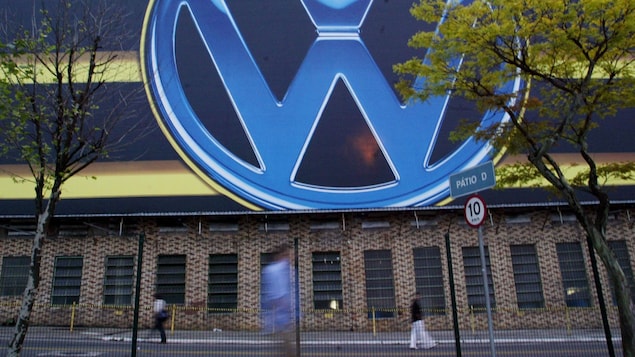Accused of taking thousands of agricultural workers to conditions close to slavery on a Brazilian ranch in the Amazon in the 1970s and 1980s, Volkswagen was heard on Tuesday by the Labor Court of Brasilia for atrocities committed during the military of the dictatorship.
The closed hearing, which began at 2 pm local time, was a first step to assess whether it is possible to reach an agreement financial institution to avoid legal proceedings, explained inAFP Rafael Garcia, prosecutor in charge of the case.
There have been serious and systematic human rights violations and Volkswagen is directly responsibleHe added.
Investigators have compiled a 90-page dossier with testimony about atrocities committed by Volkswagen executives, including at least one German, and armed guards on a 70,000-hectare cattle ranch in the Amazon basin. , whose company is the owner.
According to these testimonies, the workers, specifically hired for deforestation work, worked in conditions close to slavery, forced to spend almost all of their meager wages to buy food in the area sold in very high price.
” Workers are systematic victims of physical assault. Those who tried to flee were beaten, tied to trees and left there for several days. “
A worker tried to flee, but was caught. To punish her, they kidnapped her husband and raped her, can we read in the report of the investigation, a testimony corroborated by three persons. Other testimonies report suspicious disappearances.
The German automaker confirmed in an email sent toAFP to discard to contribute seriously to the investigation.
But so far he has declined to comment on the case, saying he is awaiting a hearing on Tuesday clarify all charges which is the subject.
Judicial precedents
In 2020, the Volkswagen group paid 36 million reais ($ 9.1 million Canadian) to compensate the families of former workers tortured or killed during the military dictatorship (1964-1985).
Tuesday’s hearing was more particularly relevant during the 1974-1986 period. During that time, the group built a large farm in the Amazon, the Companhia Vale do Rio Cristalinowhich became the largest cattle ranch in the state of Para, in the north of the country.
The atrocities were first denounced by Ricardo Rezende, a Catholic priest who spent many years gathering testimonies from victims after settling in Para in 1977.
The fact that a car manufacturer decided to start farming may seem inconsistent, but it says a lot about the environmental policy of the military regime, which offers assistance to farmers, but also to large companies. , to develop the Amazon region in a forced march, with major deforestation blows.
Volkswagen loves dictatorship
Volkswagen would have benefited in particular from tax cuts and interest -free loans, thanks to its close relationship with the generals in power.
” On the one hand, Volkswagen loves the dictatorship, on the other hand [le ranch] is highly profitable, with nearly 6,000 people working almost for free, “
Mr. Rezende assured that such activities were widespread in the region and they continued after the end of the military regime.
It is impossible to compensate for the suffering of a person who has been tortured by paying compensation. There is no adequate compensation for the suffering of women whose husbands or sons never returninsisted the priest.
But according to him, a symbolic arrangement is necessary.
France Media Agency
Source: Radio-Canada




